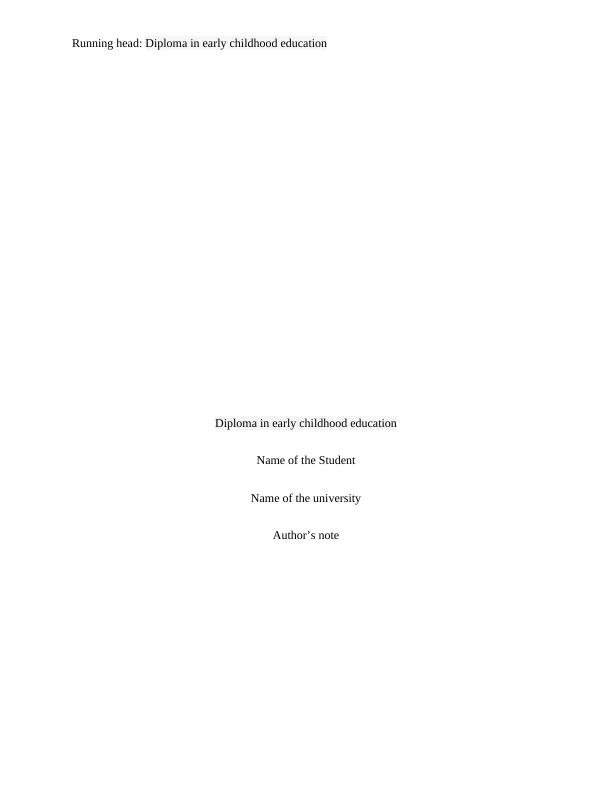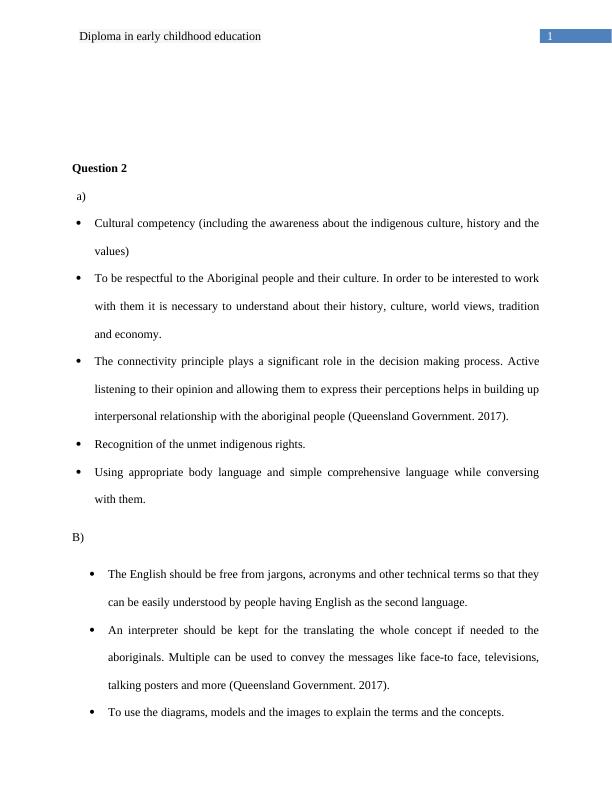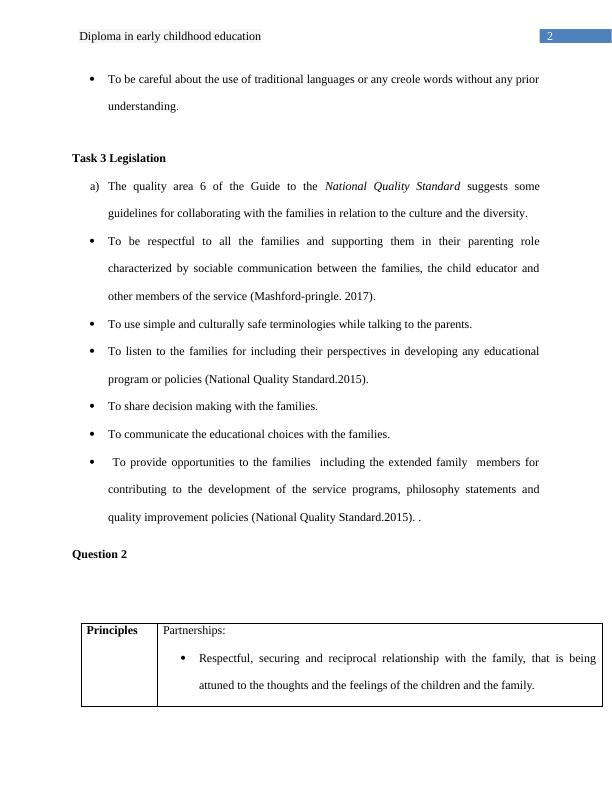Collaborating with Families and Aboriginal People in Early Childhood Education
Added on 2023-05-31
6 Pages759 Words402 Views
End of preview
Want to access all the pages? Upload your documents or become a member.
CHCECE001 Develop cultural competence
|6
|716
|171
Advantages and Disadvantages of Phonics and Whole Language Approaches
|9
|1527
|344
Study in Early Childhood Education and Care
|5
|1201
|27
Early childhood education PDF
|16
|3331
|206
Communication, language and literacy
|11
|2347
|126
Early Childhood Education and Care: Cultural Awareness and Ethical Considerations
|13
|3402
|268



